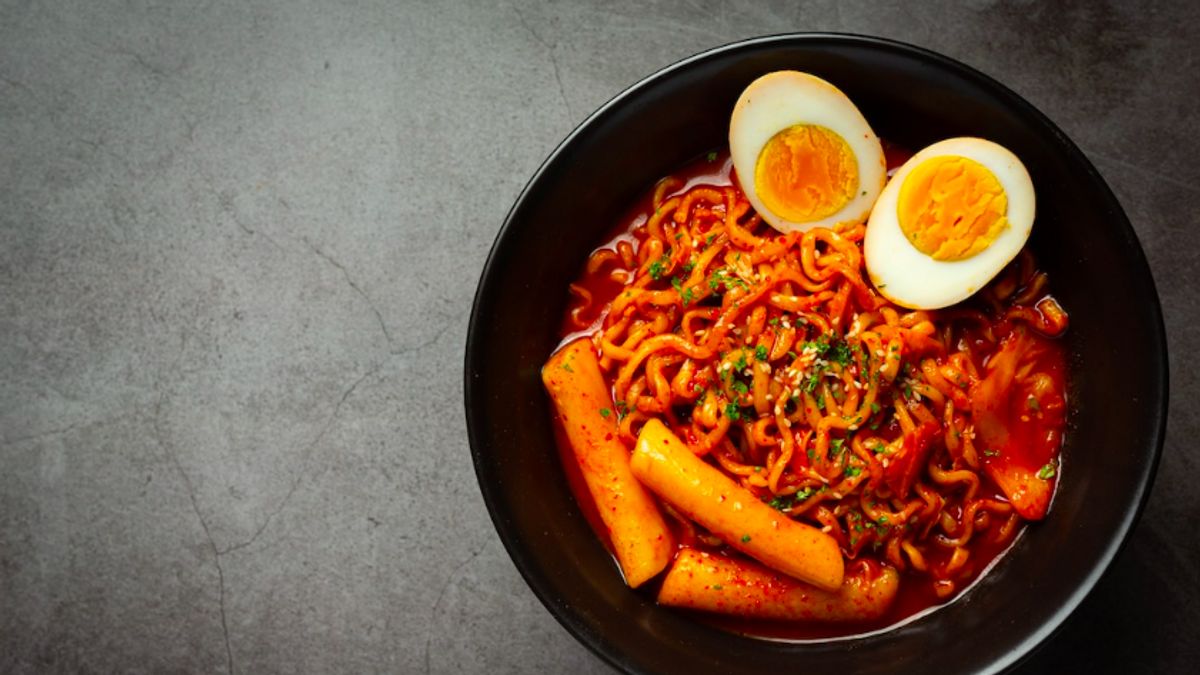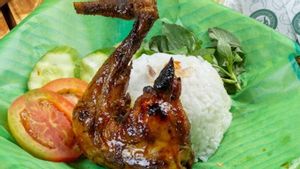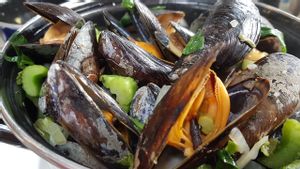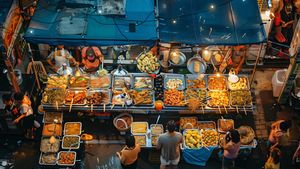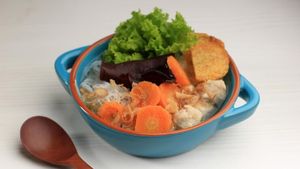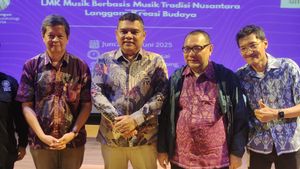JAKARTA - Each country has rules regarding food that may be circulated in the market. Some foods are considered dangerous for health. While other foods are prohibited from circulating, for cultural or security reasons.
The following 8 foods are prohibited from circulating in a number of countries equipped with reasons that attract public attention, as reported by VOI from the Love Food page on Friday, December 6, 2024.
Some rainbow or colorful meses are prohibited from circulating in the UK and the European Union. The reason is that rainbow meses often contain E127 dyes, which are only permitted for certain products and are suspected of triggering hyperactivity in children. This case emerged in October 2021 when the Get Baked cake shop in Leeds had to replace the use of illegal meses with E127-free materials.
Food Standards Scotland in the UK, and the Ministry of Industry Utama in New Zealand have set rules on the level of burger maturity that must be met.
Unlike steak, which usually has bacteria on the outside, so it's safe to only roast on the surface and the middle part is left half cooked. Patty burgers may contain bacteria. If not cooked carefully, this has the potential to cause disease.
Tomato sauce has been the center of various food controversies. In France, this tomato sauce has been banned in the elementary school lunch menu. In England, two Premier League coaches even banned tomato sauce from being used in the club's canteen. The most surprising is Israel's decision which requires Heinz to label tomato sauce as a 'tomato seasoning', as the tomato content is considered too little.
Instant noodle fans scathing in Denmark were shocked in June 2024, when one of the popular brands was banned for being too spicy. Mi Samyang with the Hot Chicken Stew 2x Spice & Buldak 3x Spicy variant is considered to contain capsaicin in too high levels. This risks causing acute poisoning for consumers.
SEE ALSO:
The Koinder Surprise chocolate candy, which is so popular, is now banned in the United States not because its ingredients are dangerous. Rather, because toys in it are considered a risk of stumbling. This is based on FDA regulations prohibiting non-food objects from being placed in food. Instead, an alternative product called Kinder Joy that is safer is now available on the market.
Mini jeli with conjac utilizing material is prohibited in the European Union, Australia, and many other countries. This product is sold in a small container with a single meal. Usually, you have to open the plastic cover to eat the jelly.
However, its shape and texture are considered to be at risk of strangling, especially for children. Although many consider this prohibition excessive, products still insist on not being sold.
The well-known Fugu fish in Japan and Korea are considered a dangerous food. These fish contain tetrodostery, a deadly nerve poison. If not properly prepared, it can cause death. In Europe, fugu is prohibited, while in Japan it can only be prepared by licensed chefs. In China, this dish is easier to find, even though the risk remains high.
This thorny fruit is very popular in Southeast Asia, although it has a very sharp aroma. It smells similar to rotten onions, odoric socks, waste, and rotting meat. This smell was so strong until 2018.
Universities in Australia must evacuate, because they think the aroma of durian is a gas leak. No wonder this fruit is prohibited from being consumed in several public places and public transportation in countries such as Singapore.
The English, Chinese, Japanese, Arabic, and French versions are automatically generated by the AI. So there may still be inaccuracies in translating, please always see Indonesian as our main language. (system supported by DigitalSiber.id)
